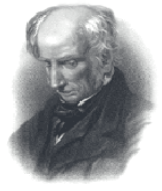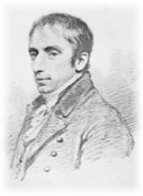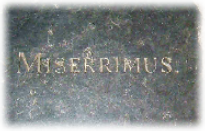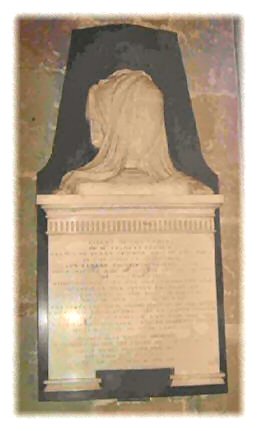FRIENDS OF CLAINES CHuRCH
William Wordsworth
Claines is a far cry from the Lake District, so often associated with Wordsworth but we have two Claines connections, not known to many.
Firstly on the South Nave wall of the Church there is a handsome memorial to Frances Fermor. On her death Wordsworth composed an “Elegiac Stanza” entitled “Cenotaph” which he addressed to Sir George Howland Beaumont, the brother-
“In affectionate remembrance of Frances Fermor, whose remains are deposited in the church of Claines, near Worcester, this stone is erected by her sister, Dame Margaret, wife of Sir George Beaumont, Bart, who, feeling not less than the love of a brother for the deceased, commends this memorial to the care of his heirs and successors in the possession of this place”
“Cenotaph” was composed in 1824, the year of her death and published in 1842.


CENOTAPH
By vain affections unenthralled
Though resolute when duty called
To met the world’s broad eye,
Pure as the holiest cloistered nun
That ever feared the tempting sun
Did Fermor live and die.
This tablet hallowed by her name,
One heart-
But if the pensive gloom
Of fond regret be still thy choice,
Exalt they spirit, hear the voice
Of Jesus from her tomb!
“ I AM THE WAY, THE TRUTH, AND THE LIFE”
William Wordsworth 1824
(published 1842)
Secondly, we have “Miserrimus.”, remembering Thomas Morris.
Thomas Morris (1668-
A GRAVESTONE UPON THE FLOOR IN THE CLOISTERS OF WORCESTER CATHEDRAL
“MISERRIMUS!” and neither name nor date,
Prayer, text or symbol, graven upon the stone;
Nought but that word assigned to the unknown,
That solitary word-
From all, and cast a cloud around the fate
Of him who lies beneath. Most wretched one,
Who chose his epitaph?-
Could thus have dared the grave to agitate
And claim, among the dead, this awful crown;
Nor doubt that He marked also for his own
Close to these cloistral steps a burial-
That every foot might fall with heavier tread,
Trampling upon his vileness. Stranger, pass
Softly!-
William Wordsworth 1828

Frances Fermor Memorial, Claines Church



